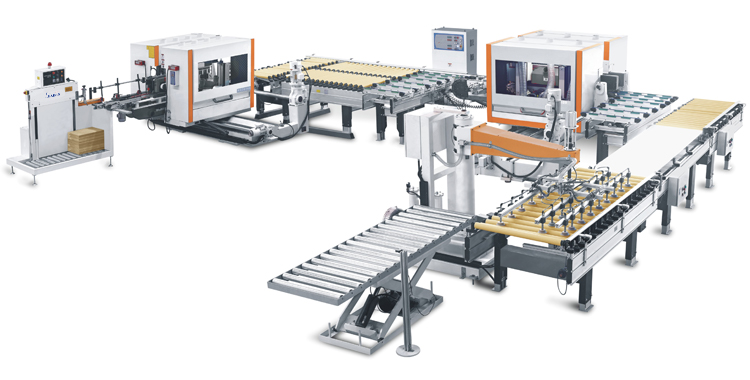Woodworking machinery has undergone significant advancements in recent years, with the introduction of automated production lines revolutionizing the industry. These automated systems have transformed the way wood products are manufactured, offering numerous advantages over traditional manual methods.
One of the key benefits of automated woodworking machinery production lines is increased efficiency. These systems are capable of performing repetitive tasks with precision and speed, resulting in higher production rates and reduced labor costs. By automating processes such as cutting, shaping, and finishing, manufacturers can significantly improve their overall productivity and output.
In addition to efficiency, automated woodworking machinery production lines also offer improved accuracy and consistency. The use of computer-controlled systems ensures that each piece of wood is cut, drilled, or shaped to exact specifications, minimizing errors and waste. This level of precision is essential for producing high-quality wood products that meet the stringent standards of the industry.
Furthermore, automated production lines enhance workplace safety by reducing the need for manual labor in hazardous tasks. Workers are no longer required to operate heavy machinery or perform repetitive motions, minimizing the risk of injuries and accidents. This not only creates a safer working environment but also helps companies comply with strict safety regulations.
Another advantage of automated woodworking machinery production lines is the ability to customize and adapt to different production requirements. These systems can be programmed to accommodate various wood sizes, shapes, and designs, allowing manufacturers to quickly switch between different product lines without extensive retooling or downtime. This flexibility is invaluable in meeting the diverse demands of the market.
Moreover, automated production lines contribute to environmental sustainability by optimizing material usage and minimizing waste. The precise cutting and shaping capabilities of these systems result in minimal scrap, reducing the overall environmental impact of wood manufacturing processes. Additionally, the efficient use of resources helps companies operate in a more sustainable and cost-effective manner.
In conclusion, the implementation of automated woodworking machinery production lines has revolutionized the industry by offering increased efficiency, accuracy, safety, flexibility, and sustainability. As technology continues to advance, these automated systems are expected to play a crucial role in shaping the future of wood manufacturing, driving innovation and competitiveness in the global market.
Post time: Apr-13-2024



